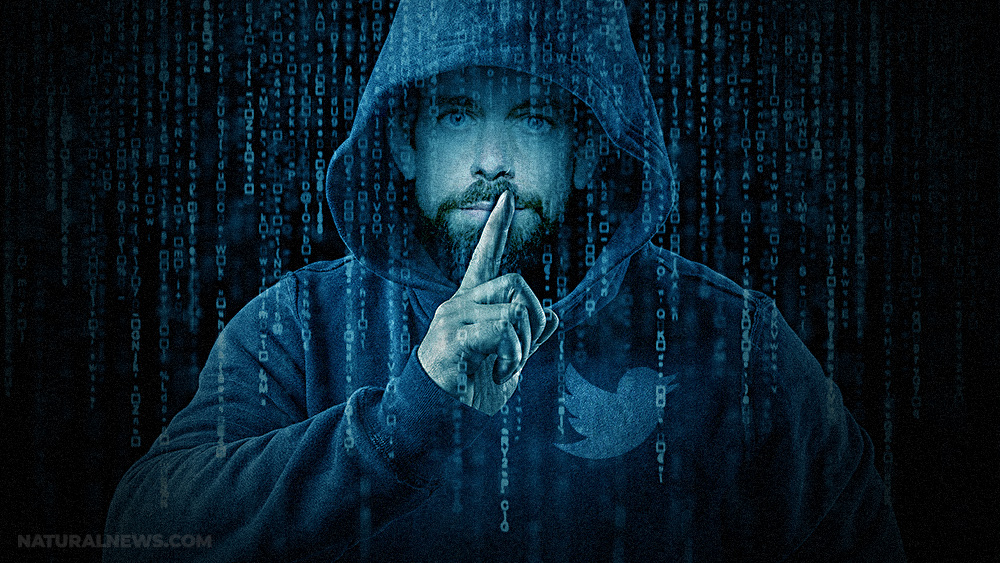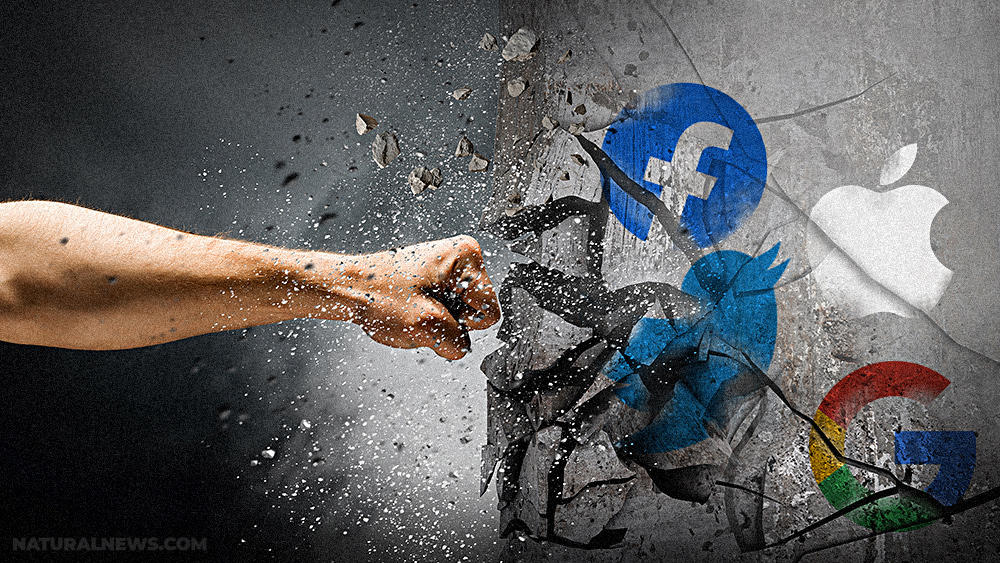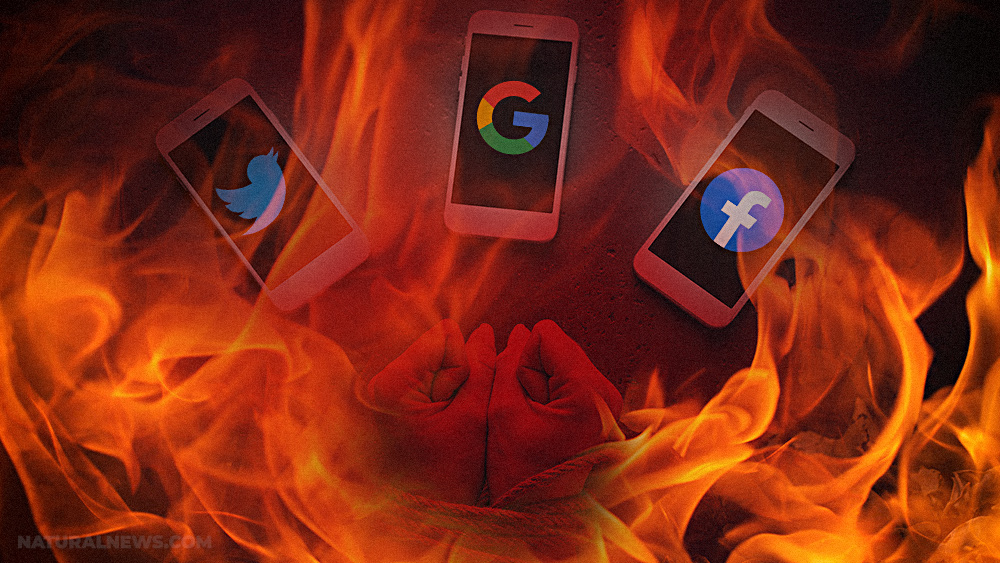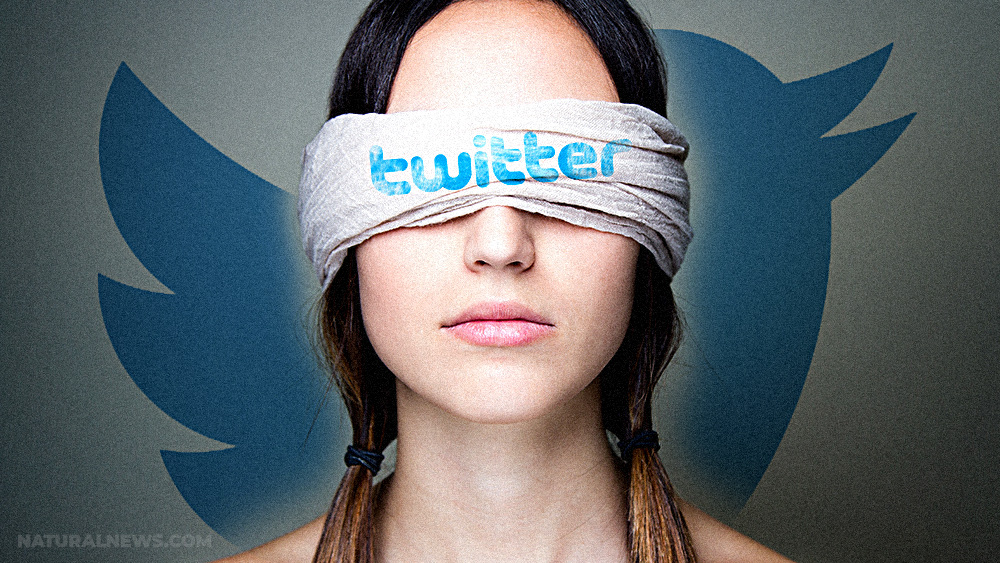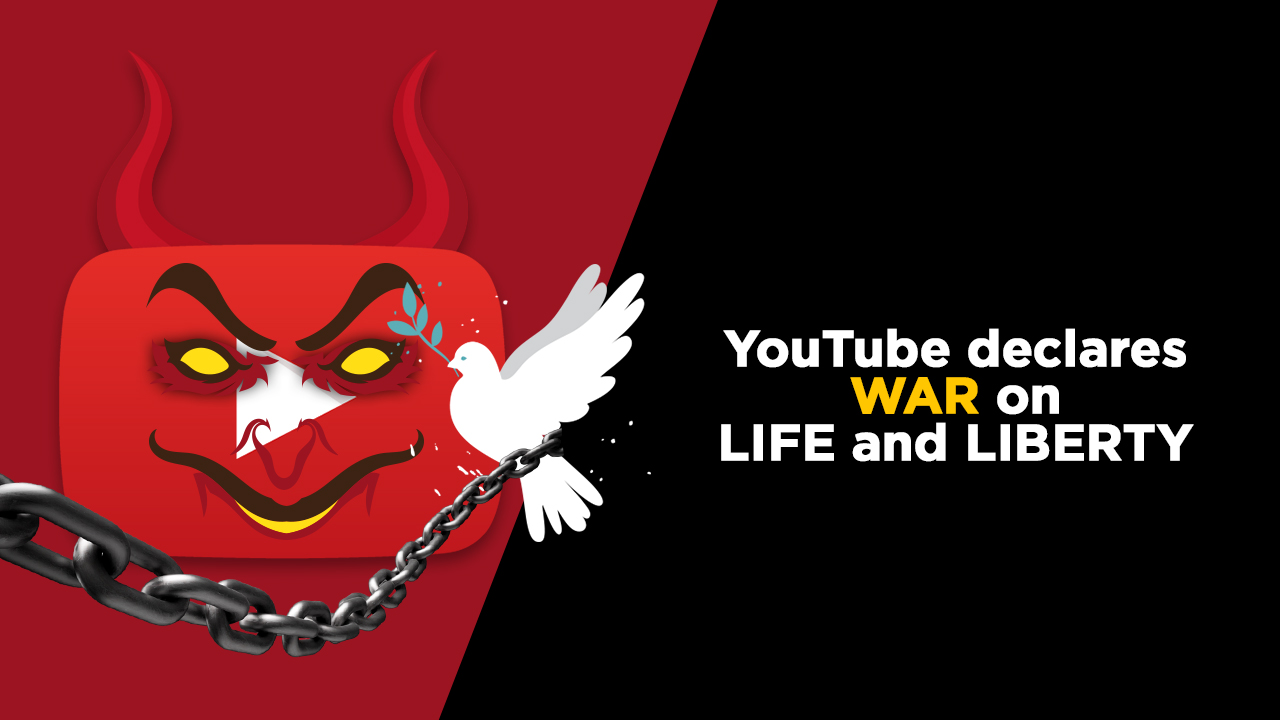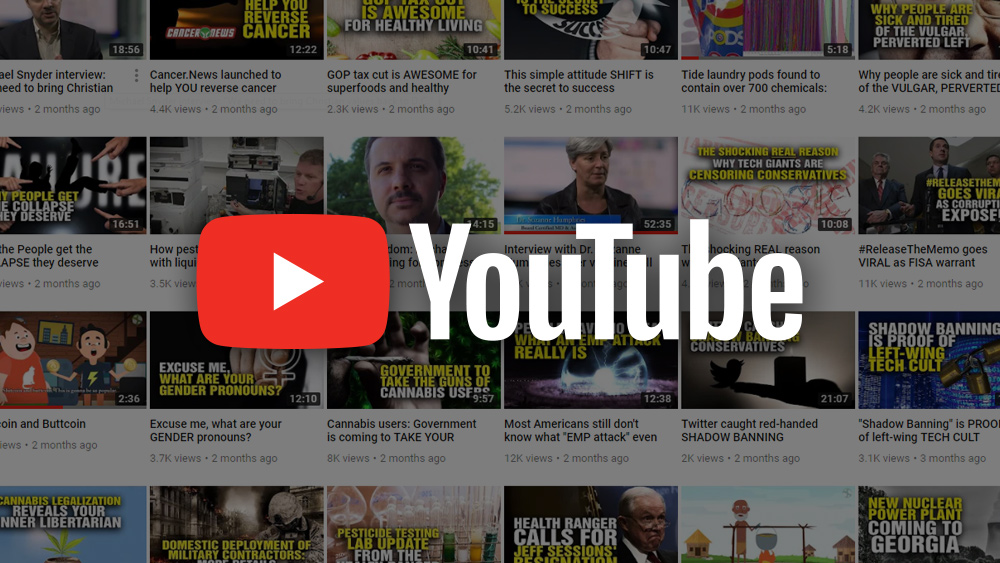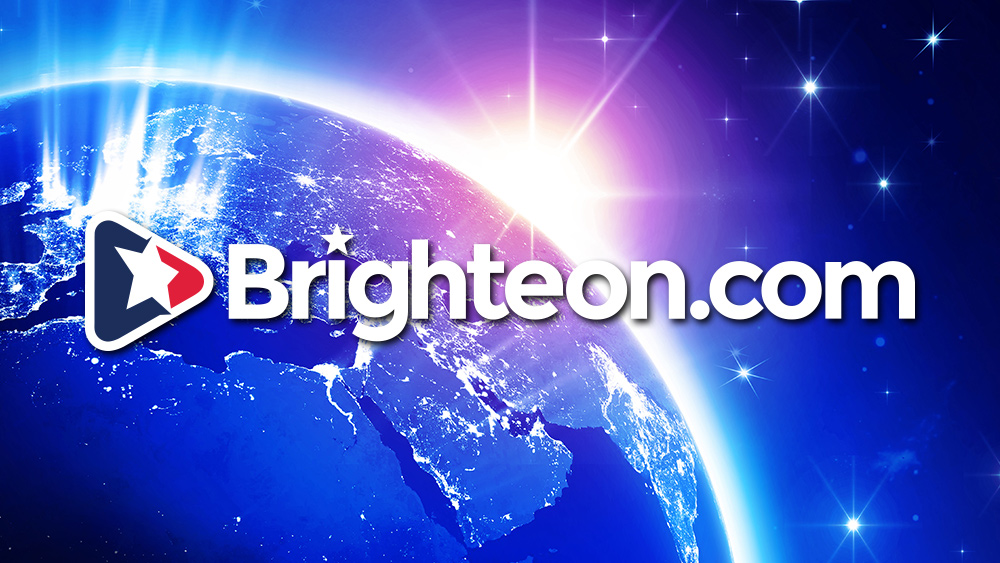CBS demands that YouTube censor “conspiracy theories” – but who defines them?
12/11/2019 / By Ethan Huff

Fake news giant CBS is calling on YouTube to expand its censorship agenda as a means to combat the spread of so-called “conspiracy theories” online. But who, exactly, gets to decide what constitutes a conspiracy theory?
Leslie Stahl of 60 Minutes spoke with YouTube CEO Susan Wojcicki during a recent interview, vocalizing her concerns about the threat of not just conspiracy theories but also “hate speech” being posted on the Google-owned platform.
In Stahl’s view, YouTube isn’t doing nearly enough to curb certain forms of free speech online, even though YouTube has been heavily cracking down on “wrongspeak” in recent days, as well as introducing new terms of service that aim to eliminate all channels that aren’t deemed “commercially viable.”
While addressing YouTube’s “tightening” of its hate speech policies, Stahl asked Wojcicki flat out, “Why’d you wait so long?” to which Wojcicki responded that YouTube has “had hate policies since the very beginning of YouTube.”
Wojcicki tried to proceed in explaining what these policies are until Stahl interrupted her with a quip about how YouTube’s hate speech policies have been “pretty ineffective.”
“You’re not operating under some freedom of speech mandate,” Stahl went on to state, emphasizing that “you get to pick,” referring to Wojcicki and YouTube, which types of content to allow and which types of content to ban.
“We do,” Wojcicki responded. “But we think there’s a lot of benefit from being able to hear from groups and underrepresented groups that otherwise we never would have heard from.”
Based on these statements, Wojcicki would seem to be on the side of the First Amendment, as opposed to the tyranny that Stahl believes needs to be ratcheted up at YouTube. As bad as YouTube already is, in other words, Stahl and CBS want to make it even worse.
One man’s conspiracy theory is another man’s truth – so why not let individuals decide for themselves rather than controlling what they’re allowed to watch?
Even though Wojcicki made the claim during this interview that YouTube allows “odious” content that some people may find offensive – which Stahl took issue with, by the way – we’re already seeing that this isn’t the case.
YouTube has been caught censoring videos about Sandy Hook, for example, including those that merely question the inconsistencies surrounding the official narrative.
YouTube has also banned videos promoting the benefits of CBD oil, claiming that CBD oil “poses risk of serious physical harm of death.”
This is a subjective assessment, of course, and completely out of line with reality. But that’s the point when it comes to the idea of conspiracy theories: One man’s conspiracy theory is another man’s truth and vice versa.
The Russian collusion narrative being spread by the mainstream media about President Trump is the very definition of a baseless conspiracy theory, and yet the entire Left has adopted it as truth. Meanwhile, posting vaccine package inserts online is considered by some to be a “conspiracy theory” because vaccine package inserts reveal that vaccines comes with the risk of complications and adverse events, including death.
What it all comes down to is whether we’re going to respect the Constitutional right of all Americans to speak freely, even if some people don’t like what’s being said, or whether we’re going to take our cue from communist China by controlling every aspect of what people are allowed to read and watch.
If Lesley Stahl, CBS, YouTube, Big Tech and the mainstream media at large are successful in achieving their goals, all news and information will first have to go through censors before being publicly released. This is why we recommend Brighteon.com, the free speech alternative to YouTube where information isn’t censored, and users are free to speak their minds.
For more related news, be sure to check out Censorship.news.
Sources for this article include:
Tagged Under: 60 Minutes, Big Tech, CBS, Censorship, conspiracy theories, content censors, fake news, free speech, Hate speech, information control, Russian collusion, Susan Wojcicki, thought control, Tyranny, YouTube
RECENT NEWS & ARTICLES
COPYRIGHT © 2017 YOUTUBECENSORSHIP.COM
All content posted on this site is protected under Free Speech. YouTubeCensorship.com is not responsible for content written by contributing authors. The information on this site is provided for educational and entertainment purposes only. It is not intended as a substitute for professional advice of any kind. YouTubeCensorship.com assumes no responsibility for the use or misuse of this material. All trademarks, registered trademarks and service marks mentioned on this site are the property of their respective owners.

